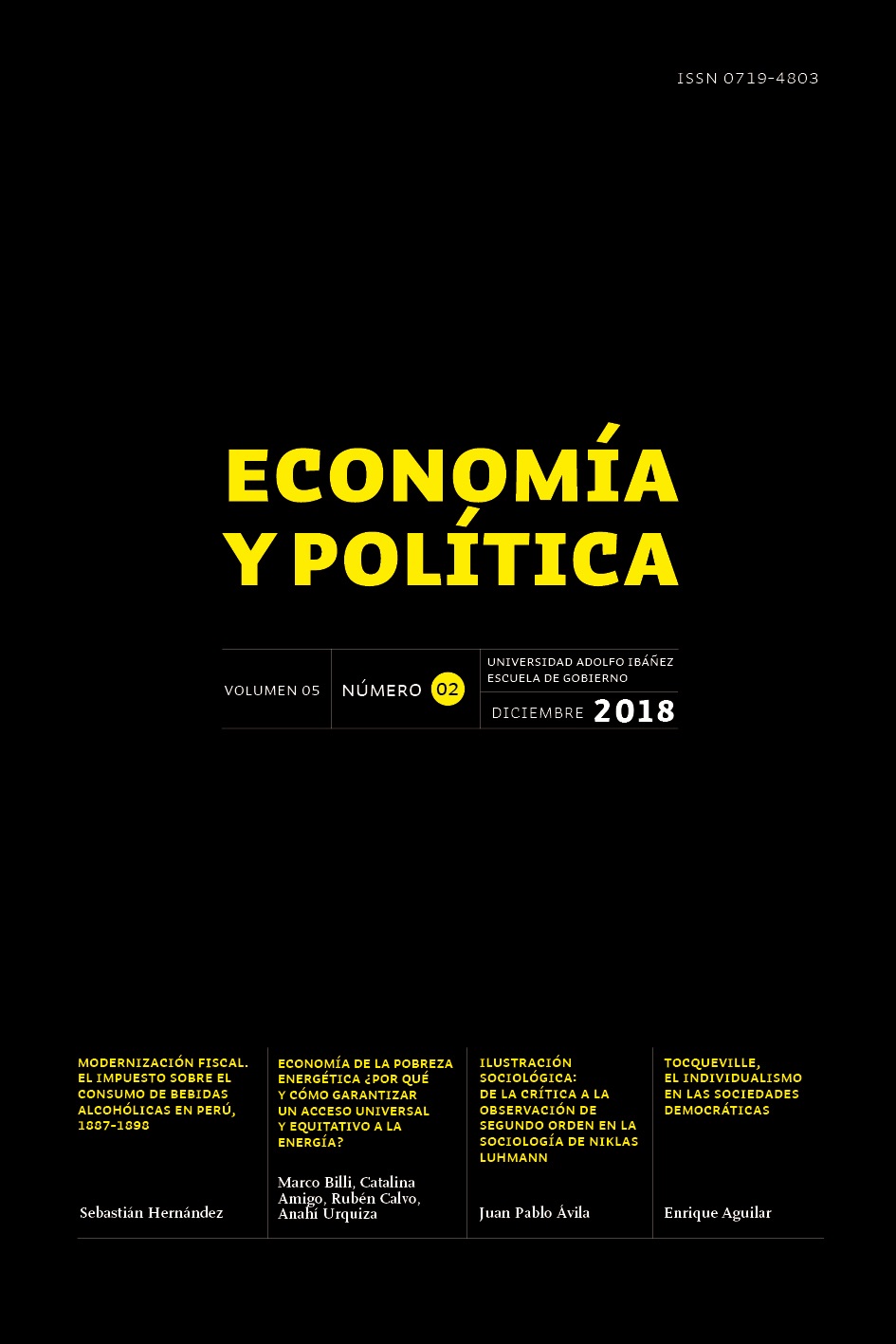Economics of Energy Poverty. ¿Why and how shall a universal and equitable access to energy be achieved?
DOI:
https://doi.org/10.15691/07194714.2018.006Keywords:
merit goods, behavioral economics, multidimensional poverty, capability approach, energy policyAbstract
The aspiration to guarantee a universal and equitable access to modern and non-polluting energies, and specifically the notion of 'energy poverty', have lately been gaining increasing relevance as objectives of social policy. However, there lacks a profound reflection on the economic justifications and considerations that could motivate and guide public initiatives in this direction, especially for what concerns Chile. Although the existence of failures in the private provision of energy can lay the foundations for a public intervention in the sector, they are not enough to justify minimum consumption standards as those required by the idea of energy poverty. Such standards, on the contrary, are consistent with an understanding of energy as a merit good, a good whose consumption should be propitiated independently of the preferences of its beneficiaries. The above observation is enhanced considering the growing emphasis placed by the specialized literature on transiting from definitions of energy poverty limited to the lack of economic or technological opportunities for the access to energy, towards more comprehensive and multidimensional understandings of the phenomenon. Within the latter, energy poverty must be understood in relation with the effective capacity of every person and household to access energy services adequate to meet their needs. In turn, this places a new emphasis on the equalization of the effective benefits that energy provides to its users –as opposed to, the mere equalization of the opportunity of gaining access to the energy services that the market provides. This shift in attention should lead to give increased relevance to the incorporation of recent findings from behavioural economics, regarding the understanding and intervention of the contexts, habits and consumption decisions from which those benefits depend.


